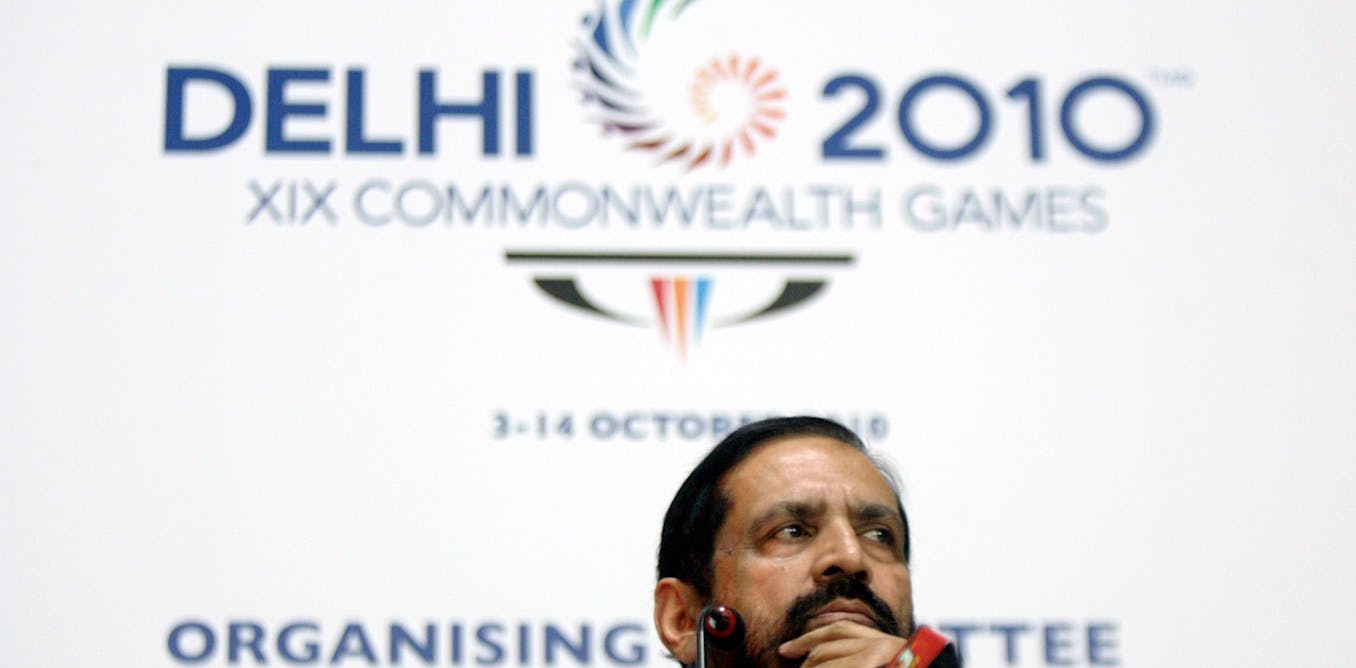
A lost reputation: india banned from olympics over corruption
- Select a language for the TTS:
- UK English Female
- UK English Male
- US English Female
- US English Male
- Australian Female
- Australian Male
- Language selected: (auto detect) - EN
Play all audios:

The International Olympic Committee’s drastic step of suspending the Indian Olympic Association (IOA) for alleged breaches of the Olympic Code and corrupt election processes has already sent
reverberations through the Indian sports world. The ban could have serious consequences for India’s already beleaguered international reputation for corruption and would prevent athletes
from competing for India in future games. In fact, two days after the announcement came the news that India now ranks 96th of 176 nations on a transparency and corruption perception index.
The IOC has been warning the IOA for some time that if it conducted its elections under it’s new Sports Code that it would breach the Olympic committee’s rules about non-interference by
government in sports matters. Breaking these rules makes it look like a straightforward case, but the real problem lies deeper. What the IOC was really pursuing was the abiding influence in
Indian sport of some notable figures tainted severely by their involvement in financial irregularities surrounding the 2010 Commonwealth Games. THE KEY PLAYERS Central in the Commonwealth
Games controversy and this new scandal was Lalit Bhanot, Secretary-General to the 2010 Organising Committee, and Suresh Kalmadi, the committee’s head. Bhanot, who has already spent 11 months
in jail on corruption charges concerning the 2010 Games, was elected unopposed as IOA secretary-general before the IOC stepped in. Kalmadi was, and remains, a key member of parliament in a
party that supports the present United Progressive Alliance government headed by Manmohan Singh and dominated by the Indian National Congress. Kalmadi was also then President of the IOA. It
should be said here that the IOC has for years ignored this “political” as opposed to “government” influence in Indian sport. Kalmadi is just one of a myriad of Indian politicians at state
and national level who have used sports organisations as another vote bank. Major sports like cricket and football have been most affected, but all sports are involved. The IOC’s real agenda
was displayed through its Ethics Commission. Once Kalmadi and Bhanot, along with several others, were arrested then later released on remand pending a trial after the Commonwealth Games,
the Ethics Commission declared the IOA should not elect any of them to office. Meanwhile, in an attempt to clean up the mess the government passed the Sports Code designed to clarify
election processes and organisational operations. The IOA tried to defy this, as did several other sports bodies, but a Delhi High Court decision ruled the IOA elections must occur under the
Code’s provisions. POWER PLAYS Technically, this is what the IOC imposed the suspension for, but it was really aimed at those elected. This is not really about “government interference” but
goes to the character of those involved at the top levels of Olympic and other sports leadership in India. After all, the IOC still has in its ranks a range of countries whose
representatives are clearly and unambiguously put there by their governments: there is constant discussion about Saudi Arabia, for example, but its Olympic body still has standing while
India now does not. At the same time as it suspended India for government interference, the IOC reinstated Kuwait citing evidence such interference no longer occurred there. Many observers
would contest that. The real focus for India, then, should be on correcting the growing outside perception that not only is its sport “politicised”, but the perception that its leadership’s
has low integrity and trustworthiness. That outside perception may be unfair in that there are obviously good sports administrators in some fields, but it is becoming a dominant perception
whether India likes it or not. FLOW-ON EFFECTS In retrospect, the 2010 Commonwealth Games consequences are now becoming increasingly significant. They were serious enough at the time, but
the IOC action suggests their on-going momentum. In turn, that reputation, involving major politicians in their sports roles, does not help in the broader sense, as surveys like the
Transparency Index match up alongside on-going corruption hearings involving, among other things, the selling off of 2G spectrum, coal license distribution, illegal iron ore mining in the
southern states, and all that against the backdrop of past cases like the Bofors arms sale scandal. The IOC’s actions then, right or wrong, have focused attention squarely on India’s
governance and probity systems more generally. All at a time when the rest of the world is wanting to engage with India as the new world economic power. It is an uneasy combination that is
likely to become even more difficult.
